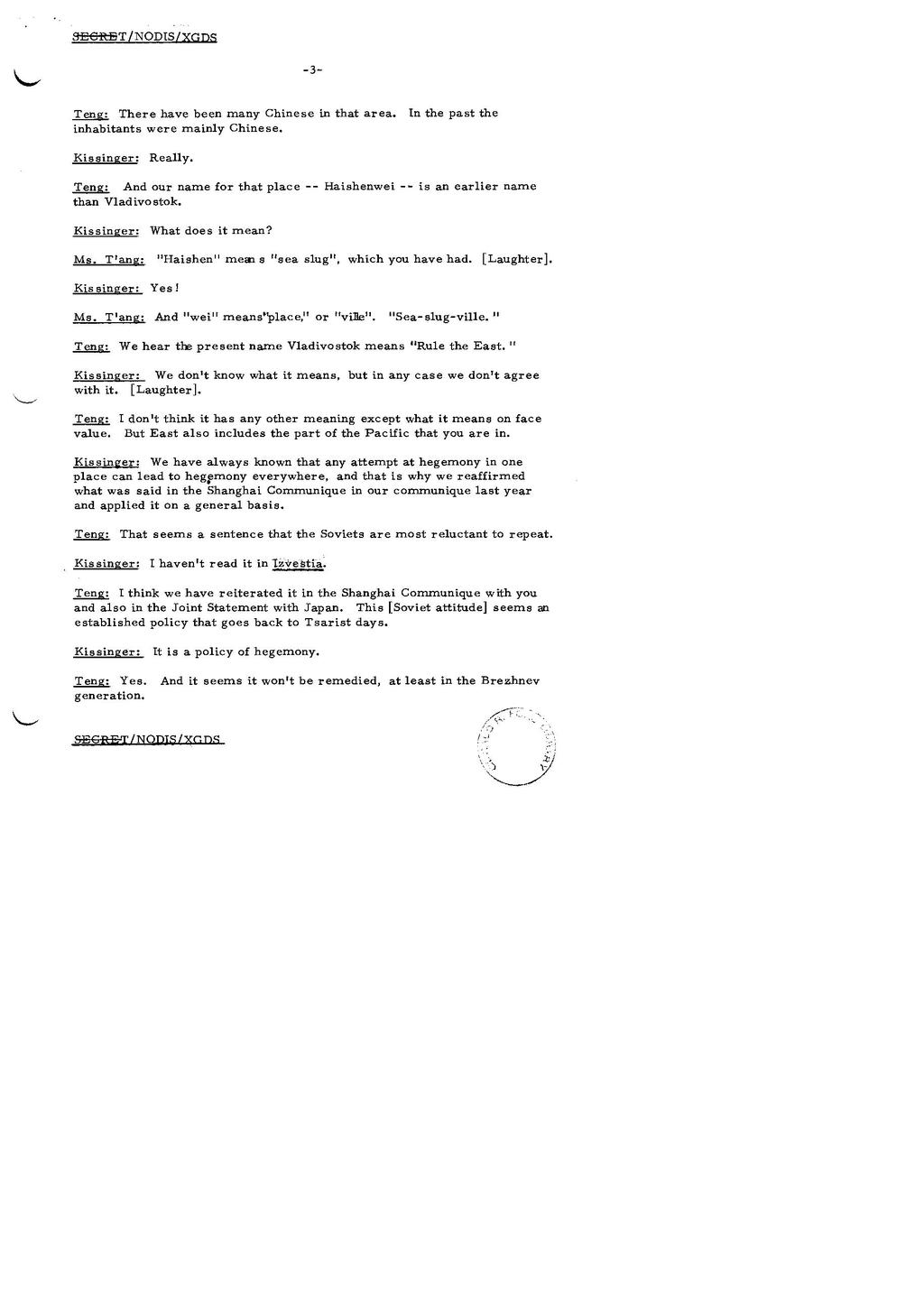Teng: There have been many Chinese in that area. In the past the inhabitants were mainly Chinese.
Kissinger: Really.
Teng: And our name for that place -- Haishenwei -- is an earlier name than Vladivostok.
Kissinger: What does it mean?
Ms. T'ang: "Haishen" means "sea slug", which you have had. [Laughter].
Kissinger: Yes!
Ms. T'ang: And "wei" means "place" or "ville". "Sea-slug-ville."
Teng: We hear the present name Vladivostok means "Rule the East."
Kissinger: We don't know what it means, but in any case we don't agree with it. [Laughter].
Teng: I don't think it has any other meaning except what it means on face value. But East also includes the part of the Pacific that you are in.
Kissinger: We have always known that any attempt at hegemony in one place can lead to hegemony everywhere, and that is why we reaffirmed what was said in the Shanghai Communique in our communique last year and applied it on a general basis.
Teng: That seems a sentence that the Soviets are most reluctant to repeat.
Kissinger: I haven't read it in Izvestia.
Teng: I think we have reiterated it in the Shanghai Communique with you and also in the Joint Statement with Japan. This [Soviet attitude] seems an established policy that goes back to Tsarist days.
Kissinger: It is a policy of hegemony.
Teng: Yes. And it seems it won't be remedied, at least in the Brezhnev generation.
SECRET/NODIS/XGDS
